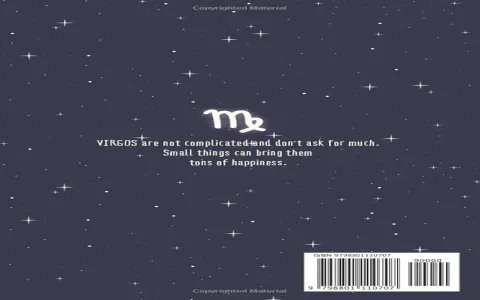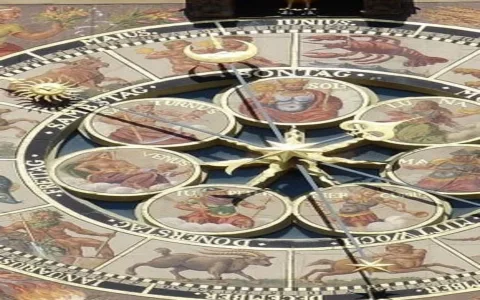The Messy Start: Turning a Worry Habit Into a Data Project
You know how it is. If you’re a Virgo—or maybe just a person who loves routine chaos—you tend to worry about money. Not just plan, but actively worry, chewing on every receipt and future potential expense. I’m a total weekly horoscope junkie. I hauled myself out of bed every Monday morning and the first thing I slammed open was the email from my preferred astrology site. Career, health, love—I checked it all. But honestly, the financial section was just another source of low-level anxiety.
For months, I just read the predictions and stewed. If it said “Financial stability is imminent,” I’d spend less because I worried the prediction was wrong. If it said “Be cautious with spending,” I’d freeze up and buy nothing, missing out on basic necessities. I realized I wasn’t getting advice; I was getting justification for my existing money neurosis. This had to change. I decided to engineer a real-life experiment, treating the horoscope not as prophecy, but as an instruction manual I had to follow to the letter, just to see what kind of mess I could make.
Building the Data Prison (aka the Spreadsheet)
It sounds dramatic, but I needed structure. I couldn’t just “try hard.” I had to quantify the madness. The first thing I did was fire up Google Sheets. Classic Virgo move, right? I committed myself to a 13-week cycle—a full quarter of weekly tracking.

My tracking system was brutal:
- Monday: Log the Prediction. I transcribed the exact wording from the Virgo financial forecast.
- Tuesday: Define the Action. I wrote down the concrete action I was going to take that week based on the prediction. If the prediction was vague, I had to scrounge a specific task out of it.
- Sunday: Review and Result. I poured over my bank statements and logged the numerical outcome (dollars saved, dollars spent, dollars earned, opportunities missed).
The key was enforcement. I promised myself I wouldn’t deviate. If the stars said “Look into passive income streams,” I had to spend minimum three hours researching dividend stocks, even if I felt like watching TV. I physically forced myself to follow the instructions that the internet gave me via the planets.
The Execution: When the Stars Told Me to Spend
The first few weeks were miserable. The horoscope was mostly conservative, telling me to “review your foundational documents” and “eliminate small, unnecessary expenses.” This wasn’t exciting, but it was effective. I dug out old insurance papers I hadn’t looked at in three years. I cancelled two streaming services I never used. The net result: boring savings. It felt like I was just doing basic budgeting, but the horoscope was the whip making me do it.
Then came Week 5. That one screwed with my head. The prediction was: “A risk must be taken this week to unlock potential wealth. Trust your instincts on a minor investment.” I’m not a risky guy. My instincts tell me to save, not spend. But I had to comply.
I walked into a local auction—something I’d never done before. I looked around wildly and saw an old, beat-up piece of furniture. My instinct (or maybe just my anxiety kicking in) told me, “This is it.” I shelled out $800 for this ugly wooden chest. My stomach was doing flips. I spent the rest of the week panicking, sure I had just wasted a substantial chunk of my savings on junk because a website told me to.
I dragged the chest home and started scrubbing it down. Turns out, the thing was much older than I thought. I spent hours researching the markings and then listed it online, not expecting much. Three days later, some collector offered me $3,500 because it was a rare regional piece. I accepted immediately and nearly fell out of my chair. That was the ‘Surprising Answer’ moment—not the prediction itself, but the unexpected windfall that came from deliberately ignoring my own cautious nature and forcing the risk.
The Real Takeaway: Structure Over Starlight
By the time I closed out Week 13, I had a much clearer picture of my financial situation than I’d had in the previous two years combined. Did the planets genuinely guide me to that $3,500 windfall? Maybe. But here’s the kicker, the true surprising answer I pulled out of this whole messy process:
The financial improvement wasn’t primarily driven by cosmic alignment; it was driven by the sheer fact that I had a weekly assignment to engage with my money. The horoscope wasn’t a good oracle; it was a fantastic, non-negotiable deadline. As a Virgo junkie, I crave structure, and I respect a system I myself put into place. When I used the weekly prediction as the prompt, I was forced to look at my bills, my investments, and my savings every single Monday.
I cataloged the data and found that my disciplined action weeks (where the prediction was boring but actionable, like “track all incoming funds”) yielded far better long-term results than the flashy risk weeks. My biggest gain wasn’t the auction profit; it was the cumulative $800 I saved just by rigorously checking and cancelling forgotten subscriptions and fees over the three months.
So, what does this Virgo junkie say about money and horoscopes now? I still read them, sure. But I stopped waiting for the universe to tell me what to do. Now, I use the reading simply to kick-start my own mandatory weekly financial review session. The planets might offer a suggestion, but it’s the spreadsheet that delivers the cash.







